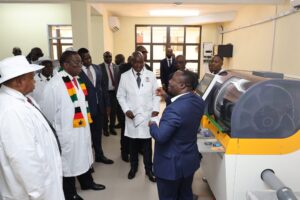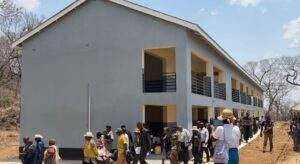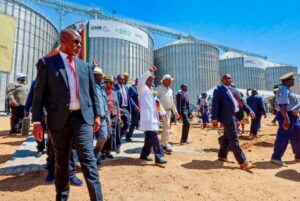Zimbabwe Takes Deputy Chair as COMESA Summit Opens in Nairobi
4 min read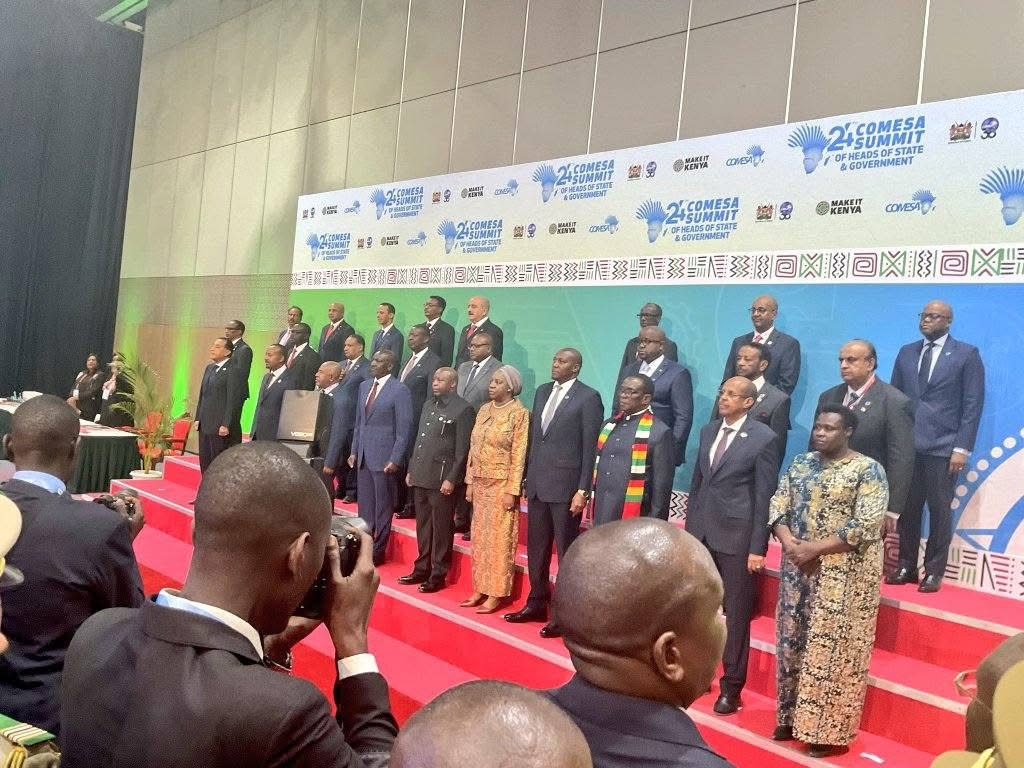
Nairobi, Kenya – The 23rd Common Market for Eastern and Southern Africa (COMESA) Heads of State and Government Summit officially opened today in Nairobi, Kenya, bringing together leaders from across the region to deliberate on strategies for advancing inclusive and sustainable industrialisation.
Held under the theme “Delivering Inclusive and Sustainable Industrialisation,” the summit provides a crucial platform for member states to strengthen regional economic cooperation, boost trade integration, and address the challenges facing Africa’s industrial growth agenda.
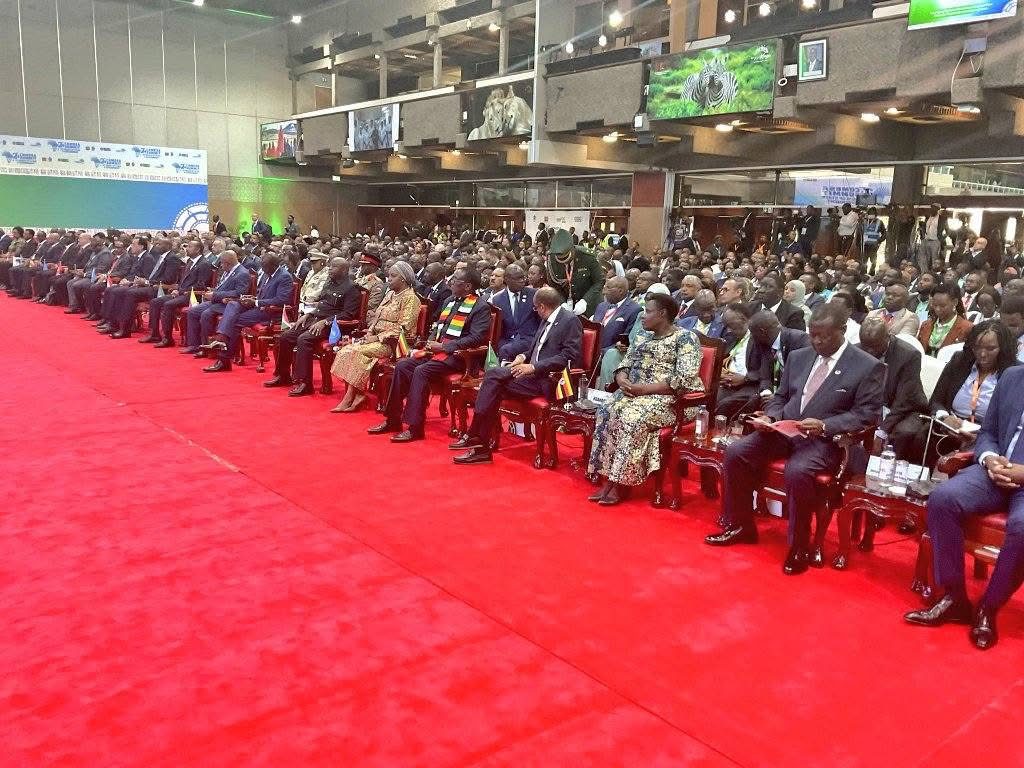
Zimbabwe is participating at the highest level, reaffirming its commitment to regional integration and sustainable economic transformation.
In a major development, the country is also set to assume the position of Deputy Chair of COMESA, a move that underscores Zimbabwe’s growing influence and leadership within the 21-member bloc.
The opening session at the Kenyatta International Convention Centre (KICC) was attended by several Heads of State and Government, including the Host President, H.E. Dr. William Ruto, who officially opened the summit.
Also in attendance were leaders and high-level representatives from across the region, the African Union (AU), and development partners.
In his opening remarks, President Ruto emphasized the importance of industrialisation as a key driver of economic resilience and inclusive growth across Africa.
“Our continent can no longer afford to be a supplier of raw materials while importing finished goods. COMESA must lead the charge toward building regional value chains, enhancing trade, and creating jobs for our people,” he said.
The summit comes at a time when Africa is seeking to accelerate its post-pandemic recovery and harness the opportunities presented by the African Continental Free Trade Area (AfCFTA).
COMESA, as one of the largest regional economic communities on the continent, plays a pivotal role in harmonizing trade policies, promoting investment, and facilitating the free movement of goods and people.
Zimbabwe’s assumption of the Deputy Chairmanship of COMESA marks a significant recognition of its ongoing contributions to regional cooperation and sustainable development.
The move reflects the confidence that member states have in Zimbabwe’s capacity to help steer the bloc’s vision toward industrial transformation and economic resilience.
Zimbabwe’s delegation is expected to emphasize the importance of inclusive industrialisation, highlighting the need for equitable participation of all member states — including smaller economies — in regional value chains.
In line with the summit’s theme, Zimbabwe has been implementing policies aimed at strengthening its own industrial base through value addition, local manufacturing, and regional trade facilitation.
“As Zimbabwe assumes this leadership role, it brings a strong voice advocating for regional unity, innovation, and collective self-reliance,” said Minister of Foreign Affairs and International Trade Hon. Prof. Amon Murwira.
“Our participation at this level demonstrates that Zimbabwe is ready to play a more active role in shaping Africa’s economic destiny.” The Minister added.
The country’s involvement at the helm of COMESA also aligns with President Emmerson Mnangagwa’s “Engagement and Re-engagement” policy, which has seen Zimbabwe deepen diplomatic and economic ties across Africa and beyond.
The theme of this year’s summit — “Delivering Inclusive and Sustainable Industrialisation” — captures the urgent need for African economies to industrialise in ways that are both people-centred and environmentally conscious.
Discussions are focusing on strengthening intra-COMESA trade, supporting small and medium enterprises (SMEs), promoting green industries, and investing in regional infrastructure such as transport corridors and energy projects.
COMESA Secretary General Chileshe Kapwepwe noted that inclusive industrialisation cannot be achieved without cooperation among member states.
“The future of our region depends on how we leverage our collective strengths,” she said. “We must ensure that industrialisation goes hand in hand with environmental sustainability, gender equality, and digital innovation.”
Zimbabwe’s economic policies under Vision 2030 resonate strongly with COMESA’s broader goals.
The government has placed industrialisation and value addition at the heart of its development agenda, particularly in sectors such as mining, agriculture, and manufacturing.
Through initiatives like the Zimbabwe National Industrial Development Policy (ZNIDP) and the Local Content Strategy, the country aims to boost domestic production, reduce imports, and create sustainable jobs.
These efforts complement COMESA’s regional integration blueprint, which seeks to transform Africa from a resource-based to a knowledge-based and industrialised economy.
Furthermore, Zimbabwe’s geographic position and infrastructure — including the Beitbridge–Harare–Chirundu Corridor — position it as a vital link in facilitating regional trade between Southern and Eastern Africa.
The Nairobi summit will also deliberate on key regional issues such as trade facilitation, food security, investment in renewable energy, and digital transformation.
Leaders are expected to adopt resolutions aimed at deepening integration and enhancing the competitiveness of the COMESA region within the global economy.
As Zimbabwe takes on the role of Deputy Chair, it is expected to play an active part in advancing these regional priorities, fostering collaboration, and supporting initiatives that promote peace and economic stability.
Regional integration experts view Zimbabwe’s elevation as a step toward strengthening collective leadership in COMESA and promoting balanced economic growth among member states.
“Zimbabwe’s leadership comes at a time when the region needs to consolidate its industrial policies, harmonize standards, and unlock the full potential of the AfCFTA,” said Dr. Monroe Hugo, a regional trade analyst.
“This is an opportunity for the country to champion inclusive growth, especially for land-linked economies.” Dr.Monroe added.
The 23rd COMESA Summit represents more than just a diplomatic gathering — it is a platform for charting Africa’s industrial future.
By focusing on sustainability and inclusivity, the bloc aims to ensure that industrialisation benefits all citizens, not just a select few.
For Zimbabwe, its new position within COMESA reaffirms its renewed stature as a regional leader, capable of driving collective progress and advocating for a fairer, more prosperous Africa.
Zimbabwe will assume the chairmanship of the regional COMESA bloc next year, running into 2027.
As proceedings continue in Nairobi, one message resonates clearly across the region: Africa’s future lies in unity, innovation, and sustainable industrialisation — and Zimbabwe is ready to help lead the way.


